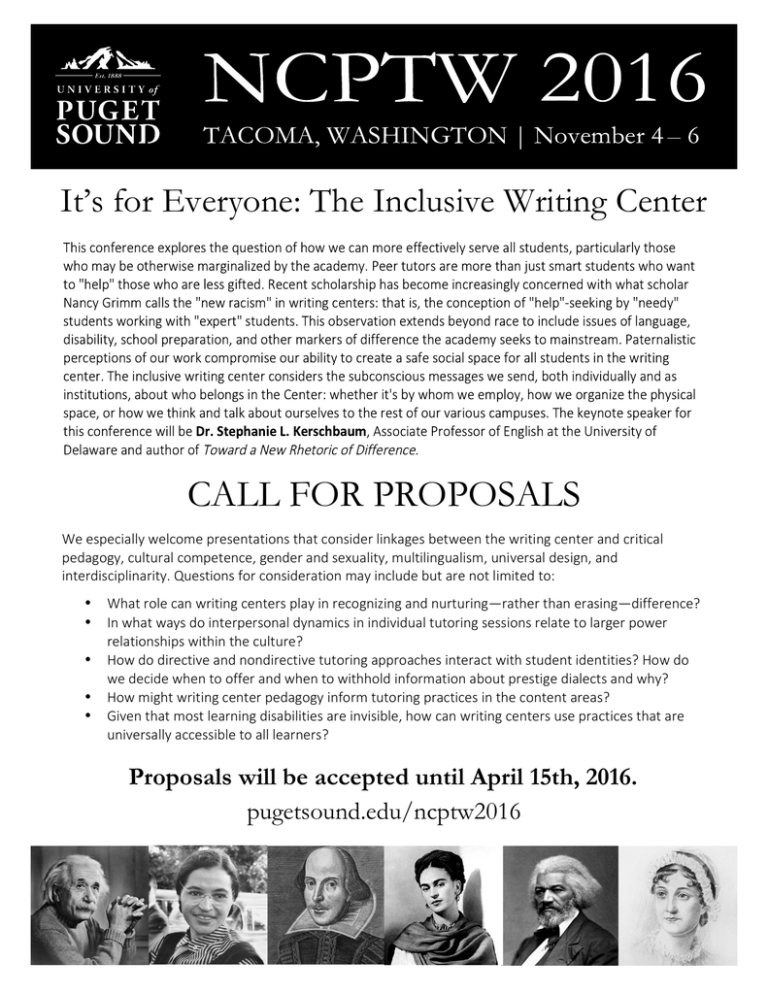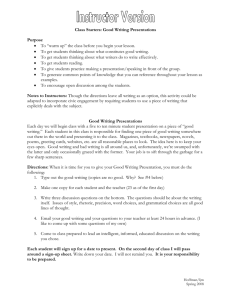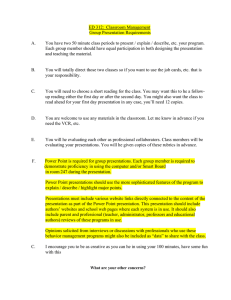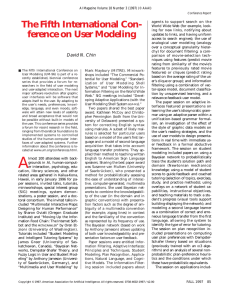CALL FOR PROPOSALS It’s for Everyone: The Inclusive Writing Center
advertisement

It’s for Everyone: The Inclusive Writing Center CALL FOR PROPOSALS We especially welcome presentations that consider linkages between the writing center and critical pedagogy, cultural competence, gender and sexuality, multilingualism, universal design, and interdisciplinarity. Questions for consideration may include but are not limited to: • • • • • What role can writing centers play in recognizing and nurturing—rather than erasing—difference? In what ways do interpersonal dynamics in individual tutoring sessions relate to larger power relationships within the culture? How do directive and nondirective tutoring approaches interact with student identities? How do we decide when to offer and when to withhold information about prestige dialects and why? How might writing center pedagogy inform tutoring practices in the content areas? Given that most learning disabilities are invisible, how can writing centers use practices that are universally accessible to all learners? Proposals will be accepted until April 15th, 2016. pugetsound.edu/ncptw2016 THE PROPOSAL We are, in short, hoping to inspire presentations that combine research with reflection and introspection with data. Of course, we also welcome writing center scholarship on any topic of general interest to the writing center community. We will accept up to two (2) proposals from any individual, so long as one of the proposals includes more than one presenter. Presentations will take the following format: • • • Individual Presentations: Panel Presentations: Round Tables: Poster Presentations: • Workshop Session: KEYNOTE SPEAKER: Stephanie L. Kerschbaum Stephanie L. Kerschbaum is Associate Professor of English at the University of Delaware, where she teaches first-­‐year writing, advanced writing, and disability studies courses, as well as graduate seminars in rhetoric and writing studies. Her experience working in the Writing Center at the University of Wisconsin-­‐ Madison has deeply informed her work as a teacher and researcher. In her book, Toward a New Rhetoric of Difference, she addresses conversations about diversity in higher education, institutional racism, and the teaching of writing by focusing on how people talk with one another, especially around issues of difference. For example, she asks questions like, "How does someone come to realize another person has a different meaning for a word or a phrase than they do?" or "How does someone communicate to someone else how they want to be understood?" These questions underpin everyday acts of communication, from routine conversational exchanges to decisions about which direction to take in a one-­‐to-­‐one conference. With Margaret Price, she is currently at work on an interview study of disabled faculty members. Her most recent article, "Anecdotal Relations: On Orienting to Disability in the Composition Classroom," examines the ways that teachers use stories to create and frame the relationships they build with their students in the classroom where disability is concerned.




